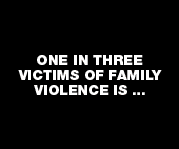A Paradigm Shift in Suicide Prevention
 Thursday, September 12, 2019 at 9:00AM
Thursday, September 12, 2019 at 9:00AM 
With special guest:
-
Anthony Smith
… in conversation with Bill Kable
We ask Anthony Smith what is the situational approach he has written about. The surprising response from Anthony is that only 10% of suicides are due to depression or what are loosely called mental illnesses. This is the first of several surprises in today’s program.
We discover that suicide is the biggest cause of death for Australians between the ages of 15 and 44. We discover that three out of four deaths are males. We find out that the cost to the economy amounts to 4% of GDP. And we are told that the current response by the Health authorities is on the wrong track.
The recent Federal Government initiative has focussed on “mental health” and is extending the reach to primary schools. The first question is what do we mean by mental health? We probably mean mental ill health. But should we be talking about distress, the normal ups and downs of being a member of human society.
There are great dangers in labelling so many mental states as depression. Although there have been many prominent members of the community calling out their own depression there is still a stigma. This can attach to job applications and even prospects of maintaining contact with your children in the Family Court after a marriage breakdown.
Furthermore the widespread dispensing of anti-depressant drugs brings its own risks. Anthony Smith calls for a paradigm shift in this approach starting with an examination of the real causes of suicide. In that category we should include:
Sickness
Financial difficulties
Relationship breakdown
Bereavement
Conflict
Unemployment
Alcohol and drugs
Trauma
These factors account for 90% of the suicides and are harder to treat than simply proposing a drug routine.
Anthony advocates a new approach to deal with these problems. We need to look at the familiar remedies starting with talking to other people who have time to devote to the problems. That will not usually mean ten minutes with a GP on a Medicare timetable or a referral to a Psychiatrist. We need to ensure proper diet, exercise and sleep patterns. We need to ensure that people see their purpose. And we have to avoid labels, even those we hear every day which appear to brand all Indigenous people as suicidal, or all men in the building industry.
This is what Anthony calls a paradigm shift to a situational approach. It will not be easy or cheap but in view of the massive financial and emotional cost being experienced now, this would be a justified investment.
Join us as we explore this pressing topic when we welcome back to the program our special guest Anthony Smith.
Anthony Smith
Anthony Smith has established a national profile in men’s issues across men’s health, suicide prevention and re-employment for mature-aged men. He has previously been the NSW State delegate to Suicide Prevention Australia.
Anthony has authored and co-authored several Papers and Reports on men and suicide including the ‘Pathways to Despair: a study of male suicide (aged 25-44)’ report and ‘Men, Unemployment and Suicide’ in the 2013 Mental Health Reform document ‘Obsessive Hope Disorder’. Most recently co-authored with Dr John Ashfield and Professor John Macdonald “A situational approach to suicide prevention”.
In 2013 Anthony organised the federally funded Pilot 45 + Program for re-employment support for mature-aged men. The independent evaluation recommends a national roll-out of the program.
For comprehensive information go to Male Suicide Prevention Australia website resources and papers pages
Song selection by our guest: Pass That Bottle by The Devil’s Daughters
If this program has raised any concerns for you please contact:
Lifeline 131114
Suicide Call Back Service 1300659467

